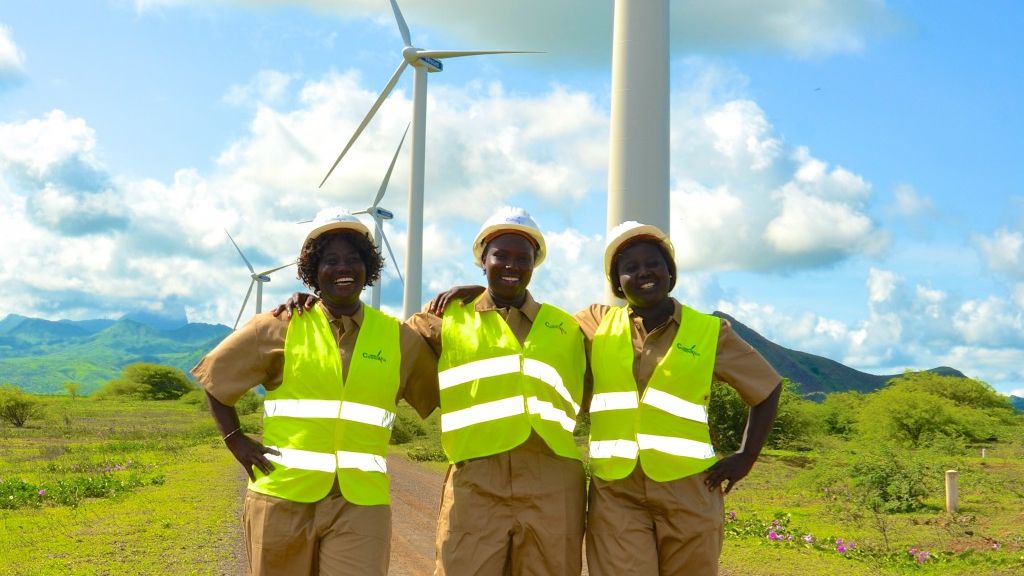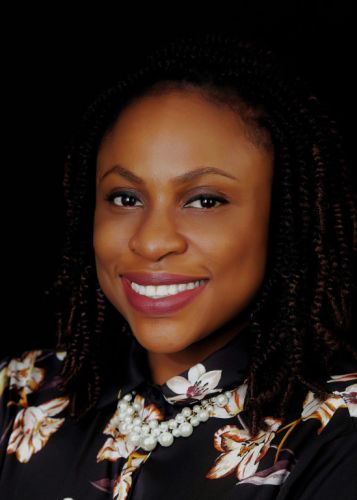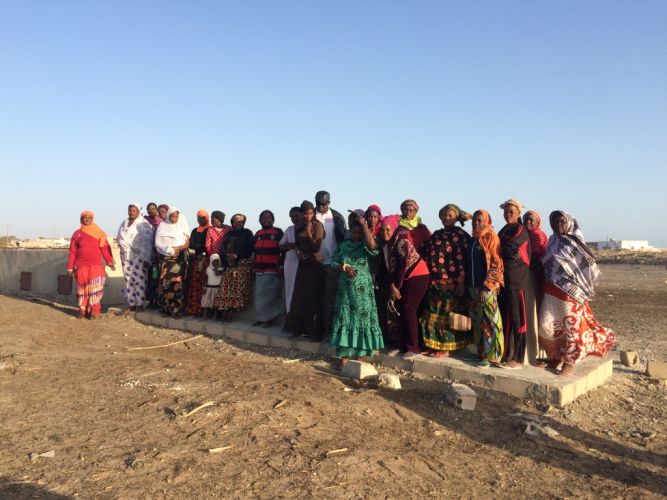Monica Maduekwe: breaking the vicious cycle of energy poverty
07 March 2018 UNIDO

“Modern energy services are the thread that holds together the fabric of a modern society.” This is the view of Monica Maduekwe, a Renewable Energy Programme Officer at the Centre for Renewable Energy and Energy Efficiency (ECREEE) of the Economic Community of West African States (ECOWAS).
The Centre was established in 2010 with the support of UNIDO, in response to the ongoing energy crisis in the region. Power plants were not operating at full capacity because the high costs of fuel proved to be a significant obstacle for countries’ efforts to meet the energy needs of their population. In the midst of low access to modern energy services and energy security issues, as well as climate change concerns, ECREEE was created to coordinate a solution to these serious challenges.
As a specialized agency charged with promoting renewable energy and energy efficiency markets in the region, one of the first things the Centre set out to accomplish was to develop the ECOWAS Renewable Energy Policy and the ECOWAS Energy Efficiency Policy. However, according to Maduekwe, previously many early energy-related policies were “gender-blind.”
Maduekwe joined ECREEE as an intern at the headquarters in Praia, Cape Verde, in 2011, having graduated from the University of Dundee with a MSc. in Energy Studies. In 2012, she became a technical project assistant and since 2014 she has coordinated the ECREEE Programme on Gender Mainstreaming in Energy Access which provides women with increased access to modern, affordable and reliable energy services, energy security and environmental sustainability.
Ensuring access to these services involves overcoming a number of challenges, encompassing economic, social and political inequality. Women in the region broadly have much lower access to education, credit and assets – for example, in Senegal and Mali around 90% and 95% of land titles are held by men, respectively.
 |
 |
Women also continue to be outside the decision-making spheres in their households and communities. While women continue to be over-represented in administrative positions in the national ministries of energy , men assume the majority of managerial and technical roles. Furthermore, when it comes to legal rights, frequently women find themselves without protection from the State - only five out of fifteen countries in ECOWAS have legislation protecting women’s land rights.
In the face of these challenges, Maduekwe believes that policy reform is fundamental for helping to break “the vicious cycle of energy poverty, which propagates economic, social and political marginalization for the already marginalized.” She says that gender mainstreaming must be central to this reform but it must also go beyond a narrow focus on “the number of times ‘women’ or ‘gender’ is used [in a policy document.]”
For Maduekwe, energy policies of the future must go beyond a consideration of promoting women’s participation, and must tackle existing challenges at three levels: political, energy supplier and energy consumer. This is the approach put forward by ECREEE, which seeks to increase the share of renewables (including large hydro) in the region’s overall electricity mix to 35% in 2020 and 48% in 2030.
Beyond its policy-related work, the Centre also runs a range of community driven projects, predominantly in rural locations, which put the beneficiaries at the heart of project design and implementation, ensuring that participants are directly involved in informing ECREEE’s future interventions. “Rather than trying to help people, we should help them to help themselves. That way you have everyone involved, in whatever little way, to fight poverty,” affirms Maduekwe.
Ultimately, reducing energy poverty is integral to ending poverty, and ensuring that women are central to this is essential. “It is important to create opportunities for women to be gainfully employed in the sustainable energy sector, as well as to have sufficient energy access to produce goods and services, for economic growth and stability,” says Maduekwe.
Delving into difficult topics, addressing the very real issue of gender imbalance in the energy sector and investing in the promotion of female education in science, technology, engineering, and mathematics (STEM), are just some of the ways that the “bargaining power” of women can be boosted.
“All hands need to be on deck to achieve the goal of ending poverty by 2030,” says Maduekwe. “If women are not given the support to be engaged in the sector, it will be a missed opportunity, not just for women but for the achievement of an inclusive and sustainable development.”
Related Links
Story: Roberta de Palma: empowering women for sustainable production
Story: Successful businesswoman inspires entrepreneurs in Tanzania